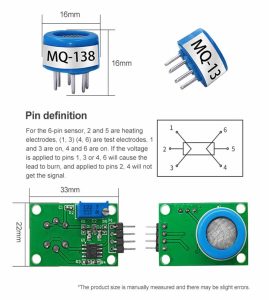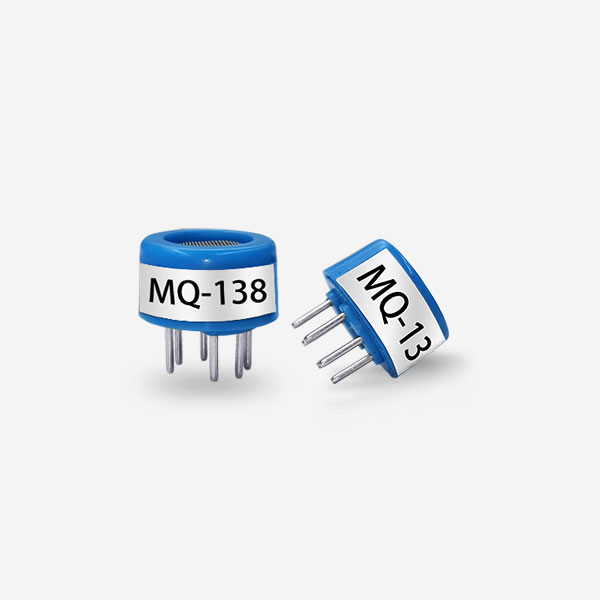-
Precautions for gas detector
- Gas detectors are essential devices used to detect and monitor the presence of hazardous gases in various environments. They are widely employed in industries, laboratories, and residential settings to ensure safety and prevent accidents.……
- Chat Online
-
Description
Gas detectors are essential devices used to detect and monitor the presence of hazardous gases in various environments. They are widely employed in industries, laboratories, and residential settings to ensure safety and prevent accidents. However, it is crucial to follow certain precautions when using gas detectors to maximize their effectiveness and protect individuals from potential dangers. This article aims to provide a comprehensive overview of the precautions that should be taken when operating gas detectors.

Familiarize Yourself with the Gas Detector
Before using a gas detector, it is essential to thoroughly read and understand the manufacturer's instructions and specifications. Each model may have specific operating procedures and limitations, so being familiar with the device is crucial for accurate and safe usage.
Conduct Regular Maintenance
Regular maintenance is critical to ensuring the proper functioning of gas detectors. Some important maintenance tasks include:
2.1 Calibration:
Gas detectors require periodic calibration to maintain accuracy. Follow the manufacturer's guidelines on calibration frequency and procedures to ensure reliable readings.
2.2 Sensor Replacement:
Sensors can degrade over time and may need to be replaced. Keep track of the sensor's lifespan and replace it as recommended by the manufacturer.
2.3 Battery Inspection:
Check the battery regularly to ensure it is charged and functioning correctly. Replace batteries as needed to avoid power failures during critical operations.
2.4 Sensor Cleaning:
Keep the sensors clean and free from dust, debris, or other contaminants that could interfere with their performance.
Understand the Limitations of Gas Detectors
Gas detectors have limitations that should be considered when using them. Some important limitations include:
3.1 Response Time:
Gas detectors may not provide instant results and may require some time to register the presence of a gas. Be aware of the device's response time and plan accordingly.
3.2 Detection Range:
Different gas detectors have specific detection ranges. Ensure that the gas being monitored falls within the device's range to obtain accurate readings.
3.3 Interference:
Certain substances or environmental conditions may interfere with gas detector readings. Be aware of potential interferences and take necessary precautions to minimize their impact.
Proper Placement of Gas Detectors
Correct placement of gas detectors is crucial for effective monitoring. Consider the following when positioning gas detectors:
4.1 Proximity to Potential Hazardous Areas:
Install gas detectors near areas where gas leaks are likely to occur, such as storage rooms, pipelines, or ventilation systems.
4.2 Height Placement:
For gases that are lighter than air, such as methane, install the detector at a higher level. For gases that are heavier than air, like propane, place the detector closer to the ground.
4.3 Avoid Obstructions:
Ensure that the detectors are not obstructed by objects that could hinder gas detection, such as curtains, furniture, or equipment.
Regularly Test the Gas Detector
Routine testing is crucial to verify the functionality of gas detectors. Perform regular tests, including bump tests and full calibration tests, to ensure that the device is operating correctly and providing accurate readings.
Educate and Train Users
Proper training and education on gas detector usage are essential for all individuals who may come into contact with these devices. Provide comprehensive training on how to interpret gas detector readings, respond to alarms, and follow emergency procedures.
Follow Safety Protocols
Gas detectors are only one part of an overall safety plan. It is crucial to have well-established safety protocols in place, including evacuation procedures, communication plans, and emergency response protocols. Ensure that all personnel are aware of these protocols and know how to react in case of a gas leak or alarm.

Conclusion
Gas detectors are indispensable tools for ensuring safety in various environments. By following these precautions, users can maximize the effectiveness of gas detectors and protect themselves and others from potential hazards. Remember to familiarize yourself with the gas detector, conduct regular maintenance, understand its limitations, place it correctly, regularly test it, provide proper training to users, and adhere to safety protocols. By taking these precautions, gas detectors can effectively detect and monitor hazardous gases, contributing to a safer and more secure environment.
-
Recommend:
-
-
Gas sensors are essential tools used in various industries …
-
Advantages and disadvantages of gas sensors
Gas sensors play a vital role in various industries and app…
-
The Role of Gas Detectors in Safeguarding Public Health
Gas detectors play a crucial role in ensuring public safety…
-
Enhancing Safety Measures: Gas Detection Devices for Improved Workplace Security
Introduction: Ensuring workplace safety is of paramount imp…
-
 : +86 155 8830 2704
: +86 155 8830 2704 : jxdziot@gmail.com
: jxdziot@gmail.com
